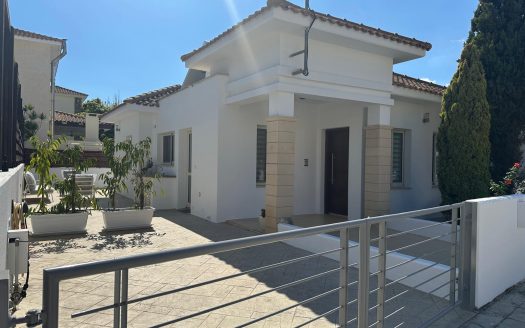Renting in Cyprus: Tenant’s Rights, Lease Agreements & Cost of Living Breakdown
Renting in Cyprus sits under two parallel systems: pure contract law for most modern homes and a special Rent Control Law regime for older dwellings in designated “controlled areas”. Knowing which side your lease falls on shapes how rents can rise, how eviction works and which court hears disputes.
Tenant Protections: Contractual vs Statutory
A contractual tenancy is the standard arrangement: the lease says how long you stay, how much you pay and when you must leave. When it ends, the landlord can ask you to move out or renegotiate.
A statutory tenancy arises under the Rent Control Law of 1983 when three criteria are met: the property sits in a controlled area (towns and urban belts designated by law), it was completed before 31 December 1999 and you lawfully remained after the first lease expired. In that case, you gain a right to stay and the landlord can increase rent only within government‑set caps. Eviction is only allowed on specific grounds (e.g. persistent non‑payment) and must go through the Rent Control Court.
The government currently limits rent increases for controlled properties to a maximum of 6% for the period covered by the latest decree. For non‑controlled properties, rent rises are whatever you and the landlord agree in writing.
Fast‑track eviction rules were added in 2021 to help landlords recover unpaid rent more quickly in statutory cases, but the procedure only applies to arrears that became due on or after 31 January 2021.
What Goes in a Lease
Cyprus leases are usually short and direct. Expect clauses on:
- Deposit amount and when it can be withheld
- Repairs: landlords typically handle structural issues; tenants cover day‑to‑day maintenance
- Utilities: who registers and pays (electricity, water, internet)
- Notice periods for both sides
- Subletting and pets
Deposits run from one to three months’ rent in practice.
Leases should be stamped with the Tax Department within 30 days of signing. Stamp duty on contracts is calculated at 0.15% for €5,001–€170,000 and 0.20% above that, capped at €20,000; agreements under €5,000 attract no duty. Keep the stamped copy and receipts for every payment.
Many renters browse sales portals to gauge market value or compare options, so you may also bump into listings to buy house in Cyprus while flat hunting.
Up‑front Costs
Budget for:
- First month’s rent
- Deposit (1–3 months)
- Stamp duty (small on typical rental values)
- Agent’s fee if you used one (often one month’s rent, but negotiable)
- Utility connection deposits (electricity and water providers may ask for a security amount)
Receipts matter. Ask for written proof of every payment during house in Cyprus for sale, including cash. Photograph meter readings and property condition on day one.
Cost of Living Snapshot (2025)
Rents. As of July 2025, average advertised monthly rents are about €917 for a one‑bedroom flat in a city centre and €745 outside the centre. Three‑bedroom apartments in central areas average notably higher. Limassol tends to be the priciest, followed by Nicosia and Larnaca.
Electricity. Household electricity cost roughly €0.32 per kWh (with taxes) in late 2024. The energy charge component alone was around €0.10 per kWh in January 2025, before other fees. Bills are issued every two months; a single occupant might see €70 in a mild period and €150–€200 in summer thanks to air‑conditioning.
Everyday spending. Numbeo’s mid‑2025 data suggest a single person needs roughly €900–€1,200 per month for food, transport and basics (excluding rent); a family of four sits around €2,800–€3,500, again excluding rent. Treat those as ballpark figures, as lifestyle and city choice swing totals sharply.
Scrolling through property portals for context often means seeing banners for Cyprus houses for sale next to rental listings. Treat them as market colour, not an indication you need to switch tenure.
Practical Tips Before You Sign
Quick checklist
- Confirm whether the Cyprus homes for sale is in a controlled area and built before 1999
- Read the rent increase clause; ask for wording tied to the decree if statutory
- Stamp the lease within 30 days and keep proof
- Photograph everything on move‑in (meters, appliances, wear and tear)
- Pay by bank transfer where possible and keep receipts
- Note the notice period and any break clause
- Register utilities in your name promptly
Moving Out or Staying Put
Give written notice as stated in your lease. For statutory tenancies, landlords must obtain a court order to evict unless you leave voluntarily. The Rent Control Court can also set a “fair rent” if either side disputes price.
If you hope to transition from renting to owning later, keep an eye on broader listings like houses for sale Cyprus to understand neighbourhood price trends while you save a deposit.
And if your plan is to buy homes in Cyprus after testing life on the island as a tenant, the same habit of documenting everything and reading the fine print will serve you well. Cyprus offers a straightforward renting experience once you know which rules apply to your home. A little paperwork discipline and cost awareness go a long way.




